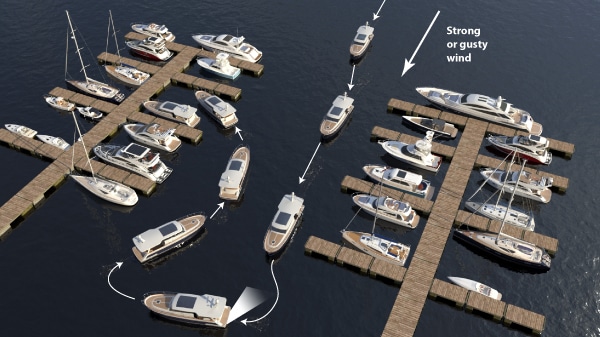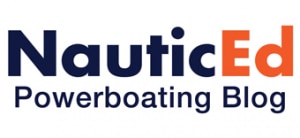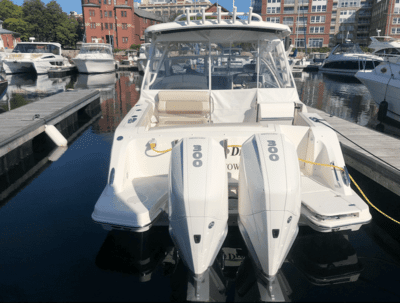Get started with powerboating with NauticEd’s FREE online Navigation Rules for Powerboats, or become a competent powerboater with the Skipper Large Powerboat Course – a comprehensive online powerboating course for beginner to intermediate powerboaters wanting to learn how to operate larger powerboats greater than 26ft. Or upgrade to the Bareboat Charter Master for Powerboats Bundle of online courses to also master multiday and near-coastal powerboating as well as charter powerboats on vacations.
Single vs Twin Outboards: What You Really Need to Know
There’s a lot of talk about single vs twin engine setups, but most of it misses the point. It’s not about what’s “best” — it’s about what makes sense for how you use your boat.
Start with This:
If you’re not running far offshore, a single engine will get the job done with less maintenance, less hardware, and fewer headaches. Simple as that.
But if you’re fishing miles out or heading into remote waters, twin motors offer more than peace of mind — they’re a safety net.
What You’re Really Paying For with Twins:
- Tight turns at the dock. Differential thrust makes maneuvering easier. You can look like a pro, even in wind and current.
- Redundancy. But only if each engine is truly independent — separate fuel tanks, electrical systems, the whole nine yards. If both engines sip from the same bad fuel? You’re still calling Sea Tow.
- A better ride when loaded heavy. When conditions get rough or you’re hauling gear, twin engines give you more control, better hole shot, and the ability to keep pushing.
But Don’t Forget What You’re Giving Up:
- Twice the maintenance. That’s double the oil, filters, and service intervals.
- Higher fuel burn and drag. Even if total horsepower is equal, twins weigh more and cut deeper.
- More complexity. More that can break. And yes — that includes someone wrapping a rope around both props.
- Big upfront cost. Not just the engines. Bigger tanks, more wiring, extra gear.
Real Talk:
Modern singles are reliable. I’ve crossed channels and run offshore plenty of times without a hiccup. If I wanted a budget-friendly, simple setup? I’d go single all day.
But… I’ve also had twins. And I loved pushing dual throttles forward. I loved docking like a wizard. I loved shutting one motor off while fishing a side, or swapping parts between them when one was acting up. The whole thing just felt more capable.
A Few Final Truths:
- Twins don’t fix poor maintenance. If you don’t take care of your engines, you’re just doubling the odds something breaks.
- If you’re going offshore solo, an EPIRB or PLB is more important than a second motor.
- A kicker isn’t always enough. I’ve seen guys with a 9.9 kicker try to limp back in 3-foot chop — doesn’t go well.
- Twins hold their resale value better. That alone can be worth it if you’re thinking ahead.
My Advice? If you can afford the fuel and the maintenance, and you run hard or far, twins are a luxury worth considering. If you stay closer to shore, trust your gear, and want a simpler boat life, stick with a single and spend the savings on safety gear, insurance, or cold beer.
Twins are peace of mind. Singles are simplicity. Pick your poison — just don’t pretend one is always better than the other.

Get started with powerboating with NauticEd’s FREE online Navigation Rules for Powerboats, or become a competent powerboater with the Skipper Large Powerboat Course – a comprehensive online powerboating course for beginner to intermediate powerboaters wanting to learn how to operate larger powerboats greater than 26ft. Or upgrade to the Bareboat Charter Master for Powerboats Bundle of online courses to also master multiday and near-coastal powerboating as well as charter powerboats on vacations.





